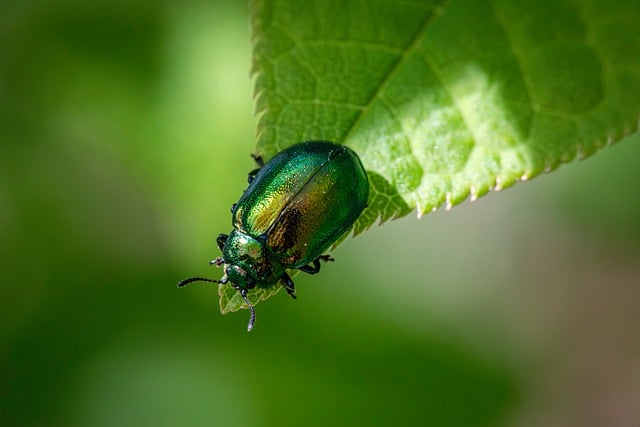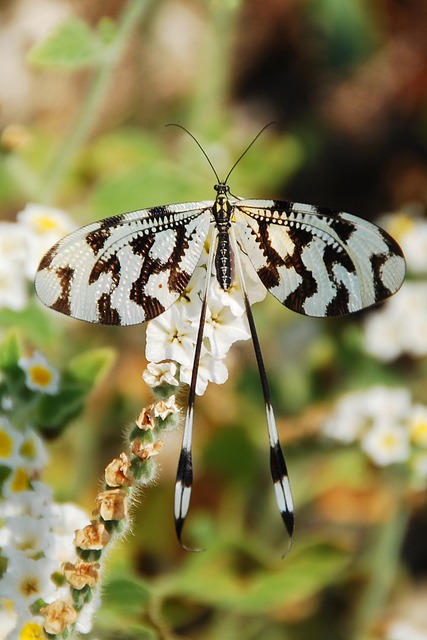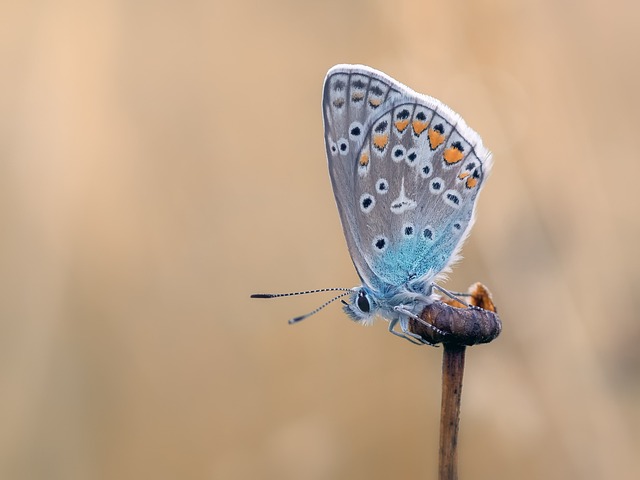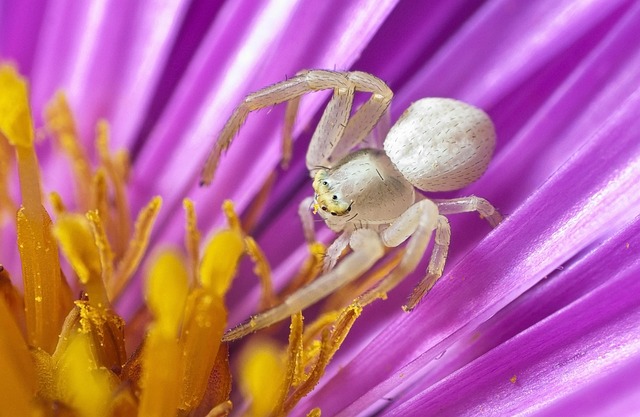Insect control services are essential for maintaining healthy living environments by managing pest infestations effectively. These services identify specific insect species and employ tailored methods, from sealing entry points to using eco-friendly chemicals or natural repellents. Professional exterminators prioritize safety and sustainability, minimizing environmental impact while controlling termites, mosquitoes, and other pests. Regular cleaning, sanitation, and professional inspections are key to preventing infestations. Choosing eco-friendly insect control solutions offers safer, cost-effective options that preserve biodiversity and maintain a balanced ecosystem.
In today’s world, effective yet safe insect control is paramount for maintaining healthy environments. This comprehensive guide explores essential aspects of managing pests while minimising risks to humans and ecosystems. From understanding basic insect behaviors to discovering natural repellents and evaluating professional services, we provide practical insights. Learn about eco-friendly solutions that offer both efficacy and peace of mind, ensuring a safer approach to insect control for your home and the planet. Discover tips to prevent infestations and embrace the benefits of choosing environmentally conscious insect control services.
Understanding Insect Control: The Basics

Insect control is a crucial aspect of maintaining a healthy and safe living environment, be it at home or in commercial spaces. Understanding the basics of insect control services is essential for anyone looking to manage pest infestations effectively. The first step involves identifying the specific insect species causing the problem, as different insects require unique control methods. Common household pests like ants, roaches, and termites necessitate distinct approaches compared to invasive species such as mosquitos or stinging insects.
Insect control services employ a variety of techniques, from preventive measures like sealing entry points to more aggressive treatments like chemical insecticides. Professional exterminators use their expertise to target pests while minimizing risks to human health and the environment. Regular inspections are key to early detection of infestations, allowing for timely intervention and preventing pest problems from escalating.
Common Pests and Their Behaviors

Insects are a common nuisance, but understanding their behaviors is key to effective insect control services. Termites, for instance, are social insects that live in colonies and are attracted to wood, often causing significant structural damage if left unchecked. They work together to build intricate networks and communicate through chemical signals, making them a formidable yet predictable target for prevention and treatment.
Mosquitoes, another prevalent pest, pose health risks by transmitting diseases such as malaria and Zika virus. These flying insects are drawn to carbon dioxide, heat, and moisture, often breeding in stagnant water sources nearby. By identifying these behaviors, homeowners can take proactive measures like eliminating standing water and using insect control services for effective management.
Safe and Effective Control Methods

In the realm of insect control, it’s crucial to strike a balance between effectiveness and safety. Many traditional methods employ harmful chemicals that can pose risks to human health and the environment. As a result, many homeowners and businesses are turning to safe and effective insect control services for sustainable solutions. These methods prioritize non-toxic approaches, such as natural repellents, beneficial insects, and targeted applications of environmentally friendly pesticides when necessary.
Safe insect control services start with comprehensive inspections to identify the specific pests and their behavior patterns. Professionals then implement tailored strategies that may include sealing entry points, removing breeding grounds, and using mechanical or physical controls like traps and sticky barriers. For chemical interventions, they opt for low-risk options with quick degradation rates, ensuring minimal impact on non-target organisms and local ecosystems. This holistic approach ensures effective pest management while maintaining a healthy and safe environment.
Natural Repellents and Their Applications

Natural repellents have gained significant attention in the realm of insect control services as a safer and more eco-friendly alternative to chemical pesticides. These substances, derived from plants and other organic sources, offer effective protection against various pests while minimizing environmental impact. For instance, citronella oil, a common ingredient in candles and sprays, is known for its ability to deter mosquitoes, making it a popular choice for outdoor events and patios. Similarly, peppermint oil has insectial properties that can keep ants and other insects at bay when applied around the home.
The applications of natural repellents are vast, from residential settings to agricultural fields. Homeowners can use them to create bug-free zones in their gardens or indoors, reducing reliance on synthetic chemicals. In agriculture, certain essential oils can protect crops from insect damage, promoting sustainable farming practices. Additionally, natural repellents are often preferred for their minimal toxicity to humans and pets, making them a safer option for families and the environment.
Professional Insect Control Services: What to Expect

When considering professional insect control services, it’s important to understand what to expect. These experts are trained to assess and identify the specific insect issues plaguing your property, whether it’s an infestation of ants, termites, or other pests. They employ a range of safe and eco-friendly methods, ensuring minimal impact on your family, pets, and the environment.
The process typically begins with an in-depth inspection to pinpoint the source and extent of the insect problem. After gathering data, technicians will design a tailored plan using industry-approved treatments, such as baits, traps, or targeted applications of pesticides. Throughout the treatment process, professionals remain communicative, offering clear instructions for post-service activities and scheduling follow-up visits to ensure the insects are eradicated effectively and permanently.
Environmental Impact of Traditional vs. Safe Insecticides

Traditional insecticides, while effective in pest control, can have detrimental effects on the environment. These chemicals often contain toxic substances that can contaminate soil, water bodies, and even the air we breathe. The application of such pesticides may lead to ecological imbalances, affecting non-target organisms, including beneficial insects, birds, and aquatic life. This can disrupt entire ecosystems, especially in delicate natural habitats.
In contrast, safe insect control methods prioritize environmental sustainability. These modern approaches focus on using eco-friendly products, biological agents, and integrated pest management strategies. Safe insecticides are designed to target specific pests while minimizing harm to the surrounding ecosystem. By adopting these practices, insect control services can contribute to a healthier environment, ensuring the well-being of both humans and nature.
Tips for Preventing Pest Infestations at Home

Preventing pest infestations is key to maintaining a comfortable and healthy living environment. Regular cleaning and sanitation are your first lines of defense against insects. Make sure to wipe down surfaces, vacuum frequently, and promptly clean spills or food crumbs to eliminate potential attractants. Sealing entry points such as cracks, gaps in doors or windows, and utility pipes can also prevent bugs from finding their way inside.
Investing in insect control services is another proactive measure that can provide long-lasting protection. Professional pest control treatments identify and target specific insects, ensuring a comprehensive approach to prevention. Regular inspections by these experts can help detect signs of infestation early on, making it easier and more effective to mitigate potential issues before they become serious problems.
Benefits of Choosing Eco-Friendly Insect Control Solutions

Choosing eco-friendly insect control solutions offers a multitude of benefits, both for your home or business and the environment. These methods eliminate the use of harmful chemicals, minimizing ecological impact and potential health risks associated with toxic pesticides. By opting for green insect control services, you contribute to preserving biodiversity while effectively managing pest populations.
Eco-friendly approaches often employ natural repellents, beneficial insects, and organic solutions that are safer for humans, pets, and wildlife. They target specific pests without disrupting the delicate balance of ecosystems. Furthermore, these methods can be cost-effective over time, as they reduce the need for frequent applications of synthetic chemicals. This long-term savings, combined with environmental stewardship, makes eco-friendly insect control a wise choice for those seeking sustainable solutions.
